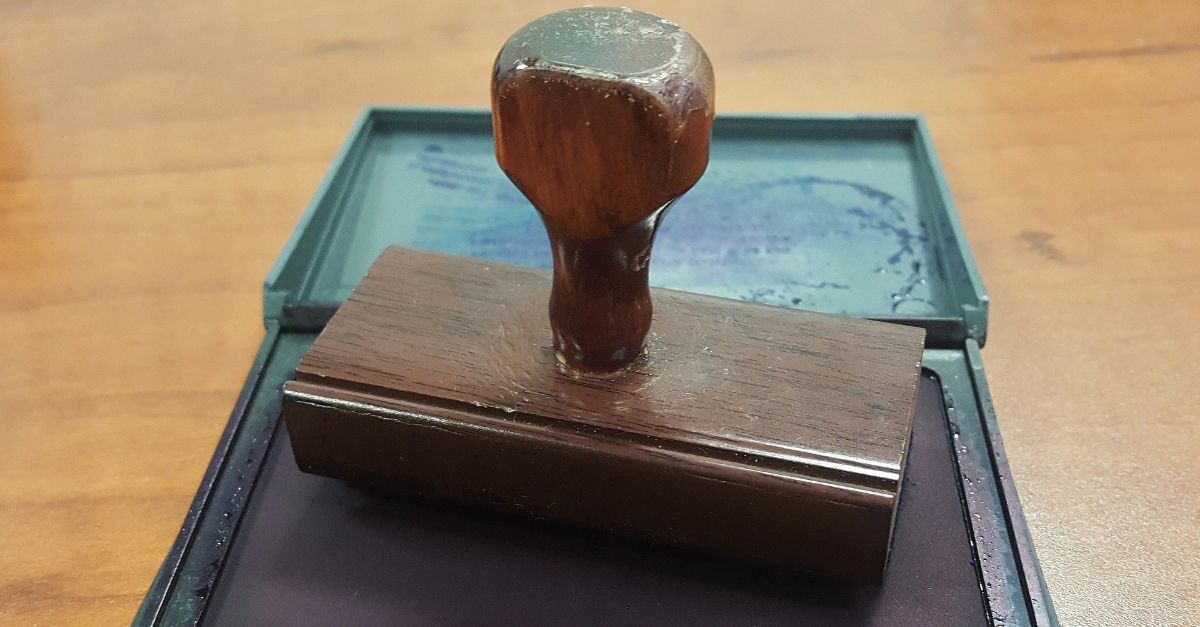ITALIAN REAL ESTATE LAW
Buying real estate in Italy is often associated with special challenges due to the complicated Italian real estate law. This is all the more true if you are buying a property under construction. Here you can find out what they are for and what the differences are between the two.
Buying a house in Italy can involve several steps: the purchase offer, the preliminary contract and the deed itself, i.e. the deed of sale drawn up by the notary. The offer to purchase and preliminary contract are not mandatory, but are often used when an immediate sale is not possible.
We advise and represent you in the purchase of Italian real estate.
We contact the estate agent, the seller, draw up the purchase offer, the preliminary contract and the Italian purchase contract, including the appointment with the notary in Italy. Or are you buying a property under construction? Then click
here
to find out more about "New-build properties in Italy".
BUYING PROPERTY IN ITALY
In addition to the acquisition costs, the follow-up costs should also be taken into consideration; after all, if the property is a long way from home, it will need to be looked after and maintained locally.
Expert advice is generally indispensable, not only with regard to drafting the contract, but also in contact with the authorities, for example to find out whether the property on offer even has planning permission. Special care is required here, as good faith is no excuse for acquiring a building with no permissions.
Even structural alterations can be illegal. The penalties are always severe and expensive. It can also be expensive if, for example, an agricultural property is purchased in the expectation of obtaining planning permission for the longed-for vacation home - but it then becomes clear that such planning permission is only granted to farmers for agricultural buildings.
PURCHASE OFFER & PRELIMINARY CONTRACT

In Italy, the negotiation of a property often begins by contacting the estate agent. First of all, he has an interest in you submitting a formal purchase offer to him.
Only then will he contact the seller to provide you with the necessary documents to check the legal condition of the property.
However, it is important to remember that the offer itself may be binding, i.e. it may commit you to purchase. Therefore, from the outset, you should try to include any clauses that you feel are appropriate to protect your interests.
What should the offer contain?
The offer, which must be in writing, must contain the following information
(-) Information about the buyer making the offer.
(-) Details of the owner of the property
(-) Property data with cadastral reference and planimetry
(-) Compliance with building and town planning regulations and possible existence of mortgages.
(-) Price offered by the buyer, terms of payment. In the case of a loan, it is advisable to indicate at least 30 days of acceptance before going to the deed.
(-) Details of the real estate agent and its registration in the Registry.
(-) Amount of commission to be paid to the real estate agent and timing.
(-) Time limit within which the offer must be accepted.
(-) If the buyer needs to apply for a loan, it must be stated that the offer is conditional on the loan being obtained.
Effects of the Offer to Purchase
The offer to purchase is usually accompanied by the payment of an amount to "stop" the house, which reinforces the intention to purchase. This amount can be paid by a non-transferable check made out to the seller. If the offer is not accepted, the agent must return this amount to the buyer, who cannot claim any further compensation.
The offer to purchase is a unilateral legal transaction that binds only the potential buyer, and if it is an irrevocable offer to purchase, it cannot be withdrawn. In the meantime, the seller may consider other options.
Only when the offer is accepted are both parties obliged to conclude the final sale and purchase agreement. In this case, depending on the clauses contained in the offer, you can sign a preliminary contract or go directly to the deed with the conditions stated in the offer.
The preliminary contract
Opting for a preliminary contract guarantees further checks and inspections of both the building and the contracting parties. In any case, the buyer who wants to avoid unpleasant surprises can check if there is a clause in the offer that prevents the signing of the deed if there are defects in the property.
Once the prospective buyer has found a suitable property and has agreed with the seller on the purchase price and other relevant terms and conditions, he or she enters into what is known as a preliminary contract (Italian: Contratto preliminare) with the seller.
The preliminary contract must be in writing in order to be enforceable in court.
The "contratto preliminare" is a private written contract in which the parties agree on the terms and conditions of the contract, in particular the purchase price, the condition of the property, perhaps also provisions on accessories, etc. The contratto preliminare can be in the form of a letter or a fax. This contract may also take the form of a deed of sale. This contract can also be drawn up in the form of a private deed with a notarized signature or in the form of a public deed by a notary. The advantage of the public deed is that the contract can be registered in the land registry. The registration protects the buyer from the risk that the legal situation of the property may change between the signing of the preliminary contract and the signing of the notarized contract, e.g. through the registration of a mortgage against the seller; however, the effect of the registration of the preliminary contract does not go as far as the priority notice of conveyance in the German legal system. If the contract is not executed, e.g. due to the seller's bankruptcy, the registration of the preliminary contract only results in a preferential right to financial compensation, but not in a claim to ownership.
In the case of the sale of a property to be built or not yet completed (typically when buying from a developer), the preliminary contract must be in the form of a public deed and must be registered.
The purchase price is usually divided into two parts, a deposit to be paid when the contract is signed and the balance to be paid when the subsequent notarized contract is signed.
The down payment - usually 15 - 25% of the purchase price - is often formulated in the purchase contract as a security for the performance of the purchase contract. The legal consequence of this is that the prospective buyer, who loses interest in the property after the conclusion of the preliminary contract, cannot recover the deposit paid by him if the contract is not fulfilled; conversely, the seller, who does not fulfil the contract, owes double the amount of the deposit as compensation.
The practice of transferring relatively large sums of money when concluding a preliminary contract, without any real security, is an attractive one.
LAND ACQUISITION COSTS
When buying a vacation home, there are various taxes to be paid (registration fees and/or VAT), depending on whether the seller is a private individual or a business subject to VAT (e.g. a developer).
In both cases, mortgage and cadastral fees must also be paid. If the seller is subject to VAT and is in the construction business, the buyer must pay the following taxes.
a) 10% VAT on non-luxury homes (20% VAT on luxury homes). Non-luxury homes are those that do not have the characteristics listed in the Ministerial Decree of 02/08/69 (where, for example, homes equipped with a swimming pool of at least 80 square meters or with tennis courts with a drained surface of at least 650 square meters are considered luxury homes); if the property was built more than four years ago, VAT is not applicable.
b) Fixed registration fees: € 168.00
c) Fixed mortgage fees: € 168.00
d) Fixed land registry fees: € 168.00
However, if the seller is not subject to VAT (e.g. a private individual), the buyer must pay the following fees
- Registry fees: 7%
- Mortgage fees: 2%.
- Land registry fees: 1%
The basis of assessment for the application of the proportional registration fees is the so-called cadastral value in the case of a property sold as a dwelling to a private individual for private use.
The cadastral value is calculated by multiplying the updated cadastral entry by the following coefficients
(a) 120 for buildings in cadastral categories A, C (except categories A/10, C/1) and D
b) 140 for buildings of cadastral category B (public buildings) b) 60 for buildings of category A/10 (offices and studios)
c) 40.8 for buildings of category C/1 (shops and businesses) and E.
If the property is not a dwelling, but a plot of land, commercial premises or offices, or if the property is sold to a company, the basis for the application of the pro rata registration fees is the value of the property as stated in the deed of sale.
The fees (registration, mortgage and cadaster) are paid by the notary when the sale is registered in the Cadaster. Therefore, the notary collects these fees from the buyer at the time of notarization.
Note: If the tax office is convinced that the value of the property in question is higher than the value stated in the deed, it will correct the information and settle the higher taxes to be paid (as well as a fine and interest) and notify the taxpayer within three years of the payment of the proportional tax with a corresponding notice. However, if the taxpayer has declared a value in the purchase contract that is not lower than the value determined on the basis of the cadastral data, the Office cannot correct the value. For sales subject to VAT, the basis of assessment is the purchase price agreed between the parties.
In the case of agricultural land purchased by a non-farmer, 18% transfer tax is payable (15% registration fee, 2% mortgage fee, 1% cadastre fee). However, the German purchaser can "opt" to become a farmer if he fulfills the relevant requirements within three years. In this case, the purchase tax is reduced to 11% (8% registration fee, 2% mortgage fee, 1% cadastral fee). If the conditions for recognition as a farmer are not met, the difference in tax (7%) must be paid in arrears with a surcharge of 30%.
Other properties are subject to an 11% transfer tax. The tax burden is much lower if the property is purchased as a primary residence (approximately 3% tax). Establishing a primary residence in Italy means that all income ("worldwide income") is taxable in Italy.
During the ownership of the property, municipal taxes and a levy calculated on the notional income value of the property must be paid.
If the property is sold within 5 years at a higher price, the difference ("added value") between the purchase price and the sale price is taxed in Italy as "Plusvalenza". Foreign real estate is not tax privileged and must always be valued at market value. This applies in particular to gifts and inheritances. In addition, inheritance tax was reintroduced in Italy a few years ago, albeit very moderately and with high exemptions.
If the property is acquired in Italy to be rented out to holidaymakers, losses are not deductible under the current rules (2009 Annual Tax Act), but surpluses are not taxable in Germany either - although they are in Italy (the situation is different for properties in Spain and Finland). If you use the property yourself, you may be able to deduct tradesmen's costs in Germany under the rules for household-related services. Although the homeowner's allowance is limited to purchases made before the end of 2006, it can also be applied to the purchase of an Italian property, even retroactively - the extent of retroactivity has not yet been decided by the courts for cases that are time-barred.
THE NOTARIAL CONTRACT

The time limit within which the notarized contract must be concluded must already be specified in the purchase offer or in the preliminary contract.
Once the preliminary contract has been concluded, the process is submitted to the notary chosen by the parties at the agreed time and a notarization date is agreed.
The notary verifies the registration of the property in the Real Estate Registry, the registration of the seller as the previous owner, the basis of the acquisition by the previous owner, and the building law situation in order to avoid the sale of an illegal building. Since 01.07.2010, Art. 19 of Legislative Decree No. 78 in conjunction with Art. 29 of Law No. 52/1985, it is mandatory to check that the actual state of the building is in accordance with the building permit; actual deviations from the permit status will result in the nullity of the purchase contract! Therefore, if a prospective buyer purchases a building in which the previous owner, for example, installed an additional bathroom without having applied for a permit, this will result in the invalidity of the purchase contract!
Theoretically, the purchase of a property can be problematic if the previous (Italian) owner and the current seller received the property as a gift. If the subsequent heirs of the (Italian) donor are unable to realize their compulsory portion elsewhere within a period of 20 years from the gift, they may have a right of recourse against the buyers who purchased from the donee. However, there are no known practical cases in which this right has been exercised.
Since 01.07.2009, the seller of a property is obliged to provide an energy performance certificate in accordance with Italian regulations (D.L. 19. Agosto 2005 n.192). This is also mentioned in the notarial deed. In some regions, the presentation of the energy certificate is required for the notarization of the deed of sale. In other regions, the preparation of the energy certificate may be regulated differently, in particular by obliging the buyer to obtain it himself.
The transfer of the property to the buyer is directly linked to the conclusion of the notarial contract (Italian "rogito" or "atto notarile di compravendita"). When the notary contract is signed, the buyer pays the purchase price minus the deposit already paid. The notarized contract requires the buyer to have an Italian tax number. This must be applied for in good time. Strictly speaking, the notarized contract is the execution of the preliminary contract. In terms of content, it generally regulates less than the preliminary contract, which has the effect of a contractual obligation. It is unusual to attach the preliminary agreement to the notary contract.
Upon conclusion of the notarized contract, the buyer becomes the direct owner. The notary will then arrange for the property to be registered. The property register is not comparable to the land register known in Germany. A registration system similar to the land register only exists in South Tyrol and Trentino.
THE REAL ESTATE AGENT IN ITALY

Interested German buyers will often use a local real estate agent who can make an offer tailored to their needs, greatly reducing the time and effort required to view properties locally. In addition, rural properties owned by farmers are not usually advertised in newspapers, so they cannot be found by a foreign buyer without a thorough knowledge of local conditions.
A real estate agent is someone who brings parties together to complete a transaction. He is self-employed and may also be hired by one of the parties to represent them in the negotiations. He is entitled to a commission from each party if the transaction is concluded through his efforts.
The Real Estate Broker must inform the parties of any circumstances known to him/her concerning the valuation and security of the transaction which may affect the conclusion of the transaction. However, he is not obliged to find out the relevant information about the condition of the property (e.g. whether mortgages or other charges are registered). In other words, the real estate agent is not obliged to verify the information provided by the seller. The buyer must make his own thorough investigation of the property. The notarized contract of sale must expressly state whether an estate agent is involved.
Real estate agents often offer to reserve properties by signing a "proposta d'acquisto" (offer to purchase). The proposta d'acquisto obliges the buyer to purchase the property at the price stated in the proposta d'acquisto if the seller accepts the offer within the specified period. If the deadline expires without a response from the seller, the "proposta d'aquisto" is no longer valid.
If the seller has agreed, he himself concludes a preliminary contract with the buyer. From this point on, the commission is due to the real estate agent because he has successfully completed his assignment. Another possibility is that the real estate agent is authorized by the seller to sell the property with a notarial deed and represents the seller before the notary when the contract is signed; this construction is often used to obtain a significantly inflated purchase price from the buyer.





